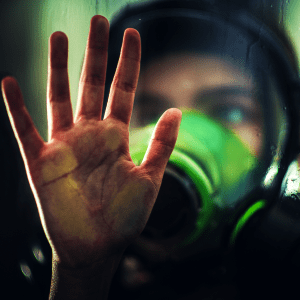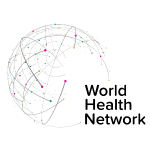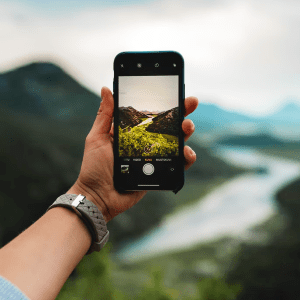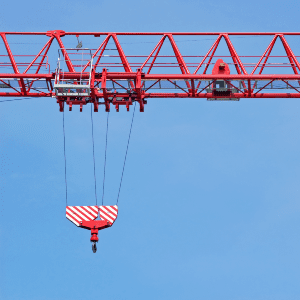 The World Health Network (WHN) announced that they are declaring the current monkeypox outbreak a pandemic given that there are now 3,417 confirmed Monkeypox cases reported across 58 countries and the outbreak is rapidly expanding across multiple continents.
The World Health Network (WHN) announced that they are declaring the current monkeypox outbreak a pandemic given that there are now 3,417 confirmed Monkeypox cases reported across 58 countries and the outbreak is rapidly expanding across multiple continents.
The outbreak will not stop without concerted global action. Even with death rates much lower than smallpox, unless actions are taken to stop the ongoing spread—actions that can be practically implemented—millions of people will die and many more will become blind and disabled.
The essential purpose of declaring a pandemic is to achieve a concerted effort across multiple countries or over the world to prevent widespread harm. The definition of a pandemic is an infectious disease growing over a wide area, crossing international boundaries, and usually affecting a large number of people. The accelerating growth across multiple continents, and the need for a concerted action to stop it, meet both the criteria and the essential purpose, for the declaration of a pandemic. Concerted global action is needed.
“There is no justification to wait for the monkeypox pandemic to grow further. The best time to act is now. By taking immediate action, we can control the outbreak with the least effort, and prevent consequences from becoming worse. The actions needed now only require clear public communication about symptoms, widely available testing, and contact tracing with very few quarantines. Any delay only makes the effort harder and the consequences more severe”, said Yaneer Bar-Yam, PhD, President of New England Complex System Institute and co-founder of WHN.
Until now most cases have been in adults, but any spread among children will lead to much more severe cases and more deaths. Infections of animals, especially rats and other rodents, but also pets, will make it much more difficult to stop. Passively waiting will lead to these harms without any compensating benefit.
The WHN announcement comes ahead of the The World Health Organization’s (WHO) meeting on June 23, 2022 to decide on their monkeypox outbreak designation. The WHN urges all local public health authorities to apply the precautionary principle and use the available, necessary, and proven interventions to contain and stop the spread.
“The WHO needs to urgently declare its own Public Health Emergency of International Concern (PHEIC)—the lessons of not declaring a PHEIC immediately in early January 2020 should be remembered as a history lesson of what acting late on an epidemic can mean for the world,” said Eric Feigl-Ding, PhD, Epidemiologist and Health Economist, and co-founder of WHN.
Monkeypox is a virus with the potential to cause significant harm to the public including acute painful illness that may require hospitalization, and may result in death, skin scarring, blindness, and other long-term disability. The most vulnerable to severe disease include children, pregnant people, and people who are immunocompromised.
The rate of identification of new cases has accelerated at an alarming rate in recent days. While the majority of identified early cases are predominantly among those who identify as gay, bisexual, or men who have sex with men, it is essential to recognize that if no action is taken, the disease will continue to spread both within this population and to members of all communities, with the potential to cause significant global disruption.
“The first 18 months of the Covid pandemic showed us that stopping the virus is a cost effective strategy that aligns health and economic outcomes. Monkeypox is much easier to stop. This will provide a level of visibility, enabling businesses to project their societies and economies into the future”, said Cecile Phillips, Economist and President of, l’Institut économique Molinari.
Evidence supports many different routes of monkeypox transmission, including physical contact (touching an infected individual, especially the rash / postules), contact with contaminated clothing, bedding and objects, breathing airborne particles, and intimate contact/sex.
The WHN is urging immediate action by the WHO and national CDC organizations. Early action will have a greater impact with smaller interventions. If effective action is taken now, larger, more disruptive interventions will not be necessary. Health authorities and governments should learn from past mistakes in delaying response. Getting ahead of an outbreak is key to stopping it. Declaring it a pandemic now will help initiate a multi-stakeholder, multi-disciplinary approach to tackle it. The more we delay, the more we increase the chances of it getting out of hand.
Governments and public health authorities around the world, and particularly in countries with identified cases, should implement the following:
-
Implement case identification widely, with comprehensive contact tracing.
-
Provide free and readily available public testing services not limited by criteria of travel, contact with identified cases, or membership in current high risk groups.
-
Isolate and provide medical care to infected individuals, with implementation of precautionary infection and prevention control measures including for contact, droplet, and airborne transmission.
-
Provide up-to-date guidance for public health workers and clinicians.
-
Provide publicly available resources for isolation and case identification.
-
Raise awareness among the public of the need and opportunity for testing, and the possibility of being infected regardless of membership in currently higher risk groups.
-
Implement Public Health Service Announcements and education for symptom recognition.
-
Allocate funds to support above described interventions.
-
Plan for use of vaccines in locations and communities where ring vaccination of close contacts is advisable to prevent wider transmission.
-
Fast track emergency approval of updated monkeypox specific vaccines for children.
-
Provide funding and resources to community organizations and leaders for effective communication and services to reach underserved and under resourced communities.
The WHN declaration further describes the nature of this pandemic, the risk of inaction, and the recommended actions at http://worldheathnetwork.global/monkeypox
Additional Quotes by WHN members and Global Experts:
USA Members Quotes:
Tiffany James, community activist, Columbia, South Carolina, Covid Action Group and World Health Network
“We have the opportunity to get ahead of another potential public health catastrophe. We need to act now in order to inform and prepare our most vulnerable communities worldwide to ensure they do not have the same fate as we have seen with the COVID-19 pandemic. Eliminating stigma and biases pertaining to monkeypox must be a priority in order to get public buy-in to participate in safe practices to eliminate the virus. Compounded pandemics will only further harm our already fragile communities”
Kaitlin Sundling, M.D. PhD physician-scientist, Madison, Wisconsin, Covid Action Group and World Health Network
“Monkeypox has the potential to cause significant harm and suffering if the outbreak is allowed to grow. Swift action from our leadership is needed. Complacency or hesitation may carry a high price. Proven methods will stop the spread of this deadly and damaging virus”
“Monkeypox can affect anyone. Stigmatization has the potential to hinder timely identification and isolation of all cases”
European Members Quotes:
Matthias Schneider, Technische Universität Dortmund, Germany, Covid Action Group and World Health Network
“We (humans) do not have a good intuition for probability. So don’t get fooled by “unlikely” / “likely” scenarios. We must act with precaution and no mercy for the virus. This is the natural and logical response to an uncertain threat. This would have stopped Covid-19 then, and can prevent the spread of Monkeybox now.”
Meir Rubin, Executive Director, Kohelet Policy Forum, Israel
“Monkeypox easily infects all mammals, between them and back to humans. To assume that the virus will limit itself to a certain population will lead us to global endemism that will require huge efforts to control.”
Latin American Members Quotes
Carlos Gershenson, Universidad Nacional Autónoma de México, Mexico, Covid Action Group and World Health Network
“COVID-19 has shown us that we should better be overcautious in the face of uncertainty. We cannot simply hope for the best when dealing with global risks. We should not make the same mistake with monkeypox. Hoping is not enough. We will achieve the best only when we expect the worst.”




















